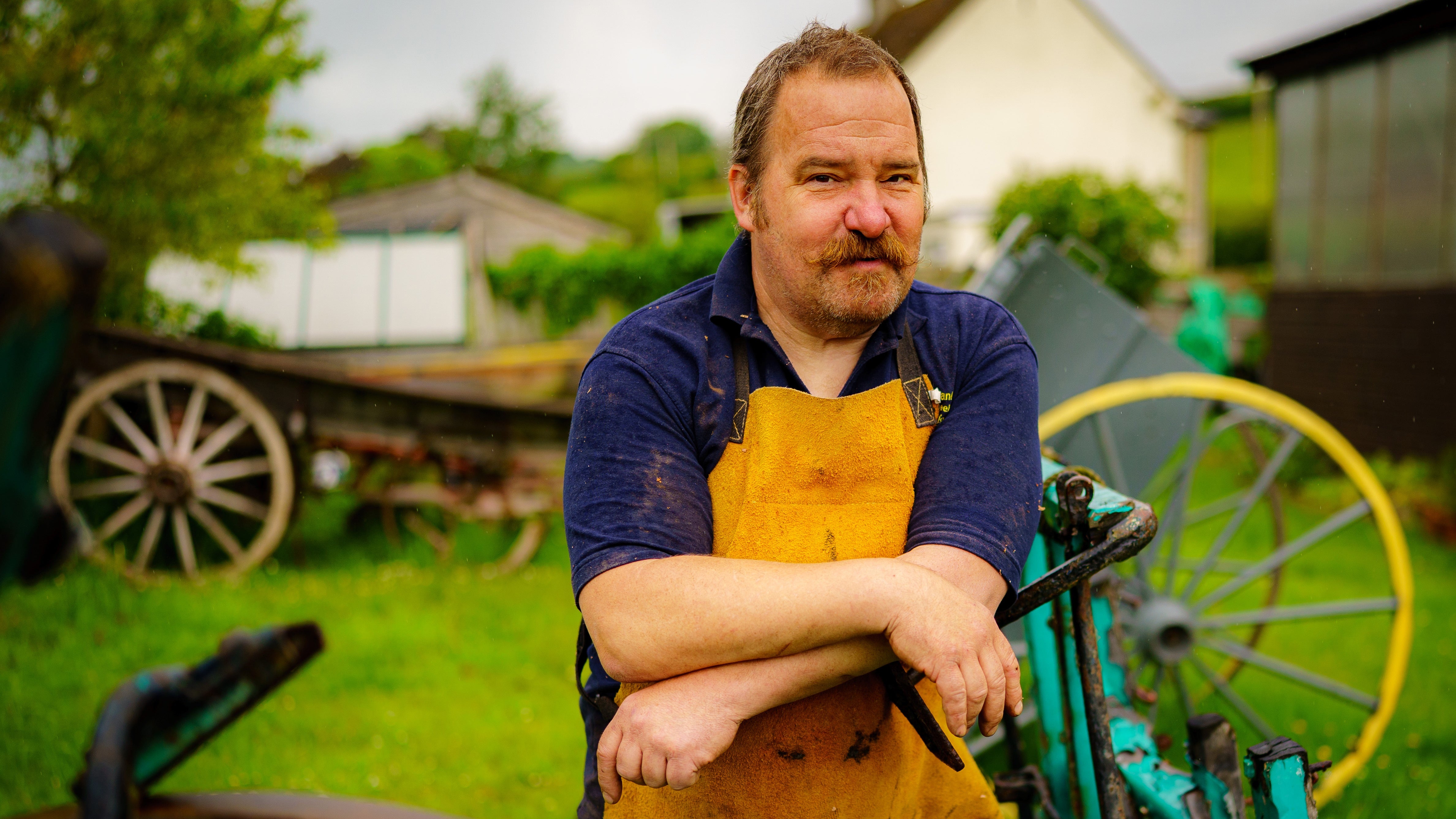Wheelwright who repairs royal carriages ‘gobsmacked’ to be made an MBE
Gregory Rowland, 52, is one of a small number of expert tradesmen still using traditional methods to make and fix wooden wheels.

Your support helps us to tell the story
From reproductive rights to climate change to Big Tech, The Independent is on the ground when the story is developing. Whether it's investigating the financials of Elon Musk's pro-Trump PAC or producing our latest documentary, 'The A Word', which shines a light on the American women fighting for reproductive rights, we know how important it is to parse out the facts from the messaging.
At such a critical moment in US history, we need reporters on the ground. Your donation allows us to keep sending journalists to speak to both sides of the story.
The Independent is trusted by Americans across the entire political spectrum. And unlike many other quality news outlets, we choose not to lock Americans out of our reporting and analysis with paywalls. We believe quality journalism should be available to everyone, paid for by those who can afford it.
Your support makes all the difference.A master wheelwright whose work is so skilled he repairs the Queen’s royal carriages has been appointed an MBE.
Gregory Rowland, 52, is one of a small number of expert tradesmen still using traditional methods to make and fix wooden wheels.
Mr Rowland, from Honiton in Devon, runs Mike Rowland & Son Wheelwrights and Coachbuilders – a firm started by his father in 1964.
Their company has held a Royal Warrant since 2005 and are one of only two firms that look after carriages for The Queen.
You never expect anything like this and I certainly didn’t. Somebody higher up has appreciated that, which is quite humbling really
The father-of-two trained as an apprentice with his father, Mike, 85, having spent five years in the Army as a Land Rover mechanic and has now been a wheelwright for 31 years.
He produces or restores about 200 wheels a year working from the purpose-built workshop in Colyton where he and his father have made or restored many horse-drawn vehicles, such as carriages, wagons and trade vehicles.
The firm is a specialist military wheel and cannon restorer and have renovated many wooden gun carriages to their former glory.
Mr Rowland, who has been appointed an MBE for services to heritage crafts, spoke of his shock at receiving the news.
“Total surprise, I had no idea and just gobsmacked really,” he said.
“I’m just humbled that I have a little old workshop that does traditional things – it’s amazing really. It’s all a bit of blur to be fair.
“You never expect anything like this and I certainly didn’t. Somebody higher up has appreciated that, which is quite humbling really.
“It’s just old fashioned – there used to be thousands of me but there are not anymore.”
Among the work he has carried out is the restoration of the Covent Garden market barrows and more recently helped renovate an 1865 gun for the National Army Museum in Chelsea.
“My father started this business in 1964 and we’ve traced our family line of wheelwrights back to 1331,” Mr Rowland said.
“We’ve got a huge history of wheelwrights and the people in 1331 were about seven miles away from us now and had the same name.
“I’ve just found out one of my direct great, great, great grandfathers was a wheelwright about 100 yards from where I’m sitting now.”
The Royal Warrant was a very small part of his trade and most of his work came from the UK, with Royal Navy field gun racing a growing market.
Mr Rowland is also working to ensure his skills are passed down to future generations as he employs one of only two wheelwright apprentices in the country and has been instrumental in developing a national syllabus and training methods for them.
His apprentice, Sam Phillips, will also be joining the family as he is engaged to one of Mr Rowland’s daughters.
“Heritage crafts can be a strange old world and people can be very insular with their knowledge,” he said.
“If you progress it and try and bring it into the 20th century it’s something that can be done and passing it on is the way to go.”